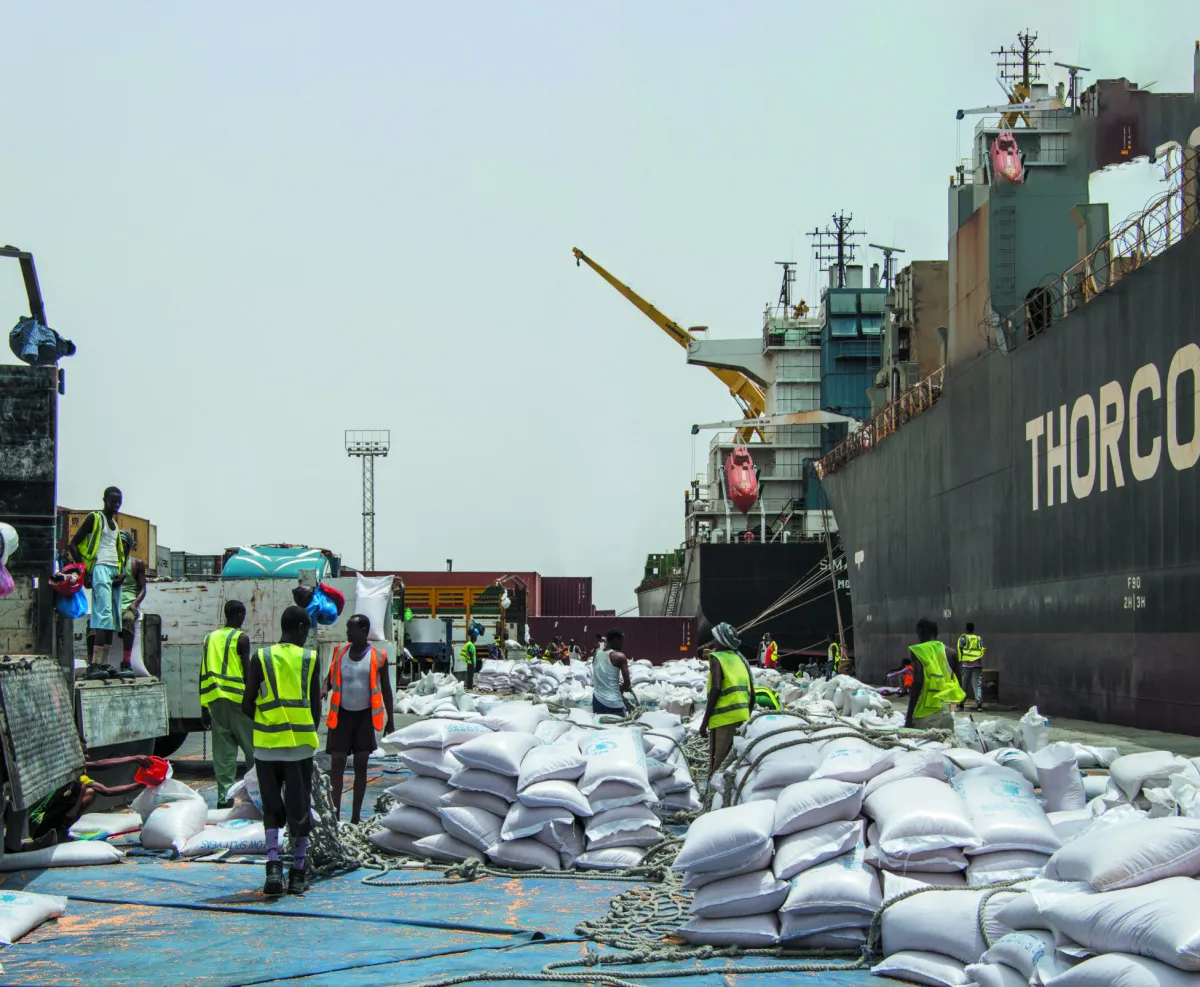UAE port operator DP World and the government of Somaliland opened a new container terminal in the Berbera port on Thursday, signalling a new era of East African trade.
The new terminal increases the port’s container capacity from 150,000 Twenty-Foot Equivalent Units (TEUs) to 500,000 TEUs annually, and is the first phase in a broader expansion that aims to position Berbera port as a major oil and gas trade corridor for landlocked Ethiopia.
The port is strategically located on the Gulf of Aden, a crucial maritime hub for a fast-growing region that processes up to 20% of global trade annually.
The first phase is part of an expansion deal signed with DP World in 2016 worth a total of $442 million. Designed to transform the dusty East African port into one of the continent’s premier facilities, it heralded a new dawn for Somaliland, one of the world’s poorest jurisdictions.
While Somaliland has yet to gain recognition as an independent state, the port’s development shows that foreign investors have faith in the autonomous region.
Investment is key to international recognition
The DP World port expansion, which added a new dock, an economic free trade zone and an as-yet-unfinished $100m road corridor connecting Berbera with Ethiopia, was an acid test for Somaliland, which declared independence from Somalia in 1991 as the latter erupted into civil war.
While the state has many of the hallmarks of nationhood, including a currency, army and democratically-elected leaders, its bid for international recognition has stalled. Yet leaders in the capital, Hargeisa, hope international investment holds the key to official independence.
“DP World is a big international company that dared to come to Somaliland, and I hope that a lot of other companies will follow,” said President Musa Bihi Abdi in 2018.
Early in 2020 his prayers were answered when Swiss commodities trader Trafigura, one of the world’s largest oil traders, signed a contract to supply hydrocarbons and upgrade the Berbera port. By September, the company delivered its first shipment of low-sulphur fuel oil.
The investment, the value of which is unknown, will include infrastructure modernisation to increase storage capacity and allow for larger ships at the Berbera Oil Terminal. It will allow Trafigura to import liquefied petroleum gas and jet fuel to meet local and regional demand as well as integrating logistics and harmonising fuel specifications in the Horn of Africa, thereby boosting regional trade.
Economy remains weak
Somaliland’s 3.5m people might enjoy relative security, but they remain desperately poor, beset by a weak economy. Gross domestic product was just $2.5bn in 2021, with a GDP per capita of $475 a year, higher than only South Sudan, Eritrea and Burundi.
Its economy is heavily reliant on agriculture and livestock, making it vulnerable to the effects of climate change, including pests, drought and floods.
Access to Ethiopian market
Trafigura’s investment in Berbera port is as much about Somaliland’s vast, energy-hungry neighbour, Ethiopia, as it is about the breakaway state.
The new route reduces reliance on the port of Djibouti for Somaliland’s landlocked neighbour, and provides an important boost for the region that will open up palpable opportunity for the region, experts say.
Ethiopia is Africa’s second most populous country, with a population of 112m and a demand for fuel that was growing rapidly before the onset of Covid-19. Trafigura reportedly supplies 60% of the petrol sold in Ethiopia, 50% of the diesel and 25% of the jet fuel, having signed a contract with the Ethiopian Petroleum Supply Enterprise earlier this year.
Geopolitical context
However, the geopolitical context is not entirely favourable to Somaliland. Somalia continues to claim Somaliland as its territory. The DP World deal, which came amid a diplomatic dispute between the UAE and Somalia, sparked ire in Mogadishu, whose government declared it “null and void”. Hargeisa, though, was unmoved.
Additional reporting by Charlie Mitchell.
Want to continue reading? Subscribe today.
You've read all your free articles for this month! Subscribe now to enjoy full access to our content.
Digital Monthly
£8.00 / month
Receive full unlimited access to our articles, opinions, podcasts and more.
Digital Yearly
£70.00 / year
Our best value offer - save £26 and gain access to all of our digital content for an entire year!
 Sign in with Google
Sign in with Google 



